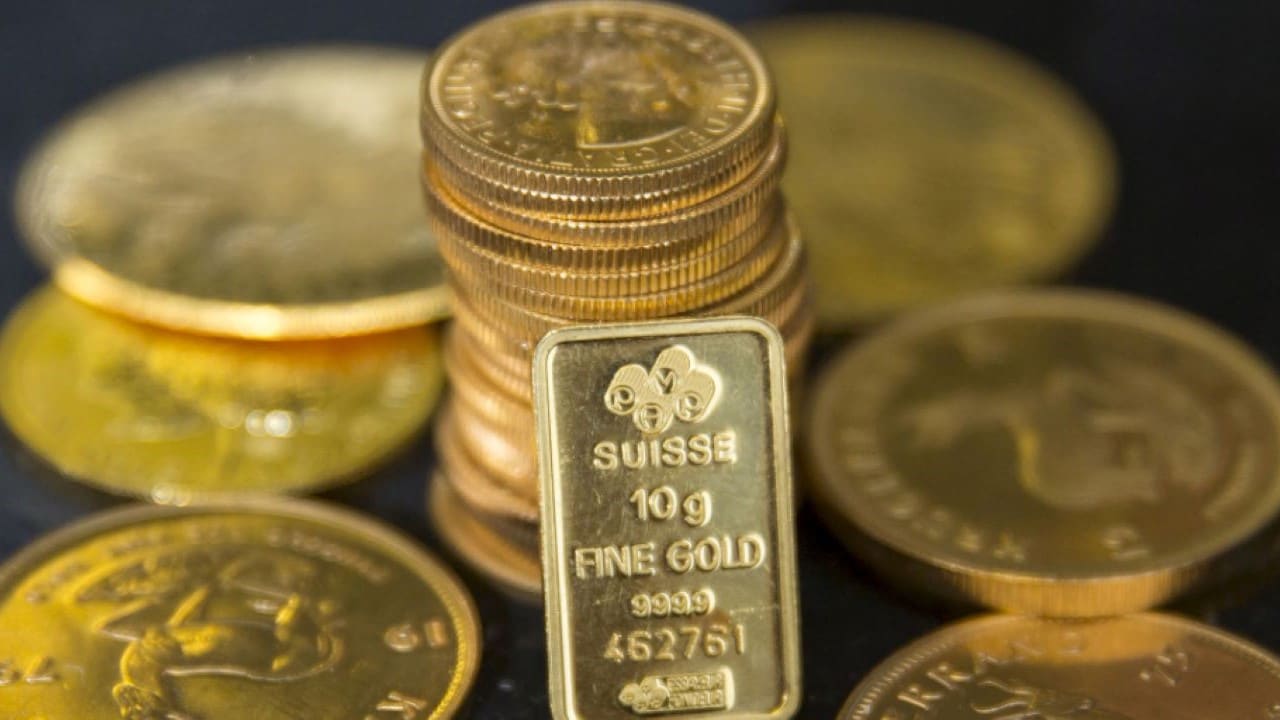Advertisement|Remove ads.
India could become global capital provider if retail gold leasing is regulated: SafeGold’s Gaurav Mathur
SafeGold CEO Gaurav Mathur believes India’s vast household gold reserves can be transformed into a source of global capital if the government introduces clear rules for retail gold leasing. He said a regulatory framework would not only safeguard consumers but also help reduce gold imports and strengthen the financial ecosystem.

India has the potential to emerge as a global provider of capital if the retail gold leasing market is brought under a formal regulatory framework, according to SafeGold founder and CEO Gaurav Mathur.
Speaking to CNBC-TV18, Mathur said a clear policy could unlock the massive value of gold lying idle in Indian households and transform the financial sector.
“The heart of all regulation, if you distil it down, is customer protection,” Mathur said. “If a customer buys 10 grams of gold, the regulatory framework must ensure that 10 grams of gold are securely kept in the vault and nothing happens to it without the customer’s explicit direction.”
Mathur explained that SafeGold and other players have been engaging with authorities to build a regulatory structure for digital gold and retail gold leasing. The company runs a gold metal leasing programme that allows consumers to lease their underlying gold to jewellers, helping reduce India’s dependence on gold imports. “India was the first country in the world to have retail metal leasing, and we were the first company to do it,” he said.
In the past year, SafeGold has also partnered with jewellers to collect physical gold from households, enabling consumers to earn a yield on their gold holdings. Mathur said this model has already collected more gold than most banks under the government’s gold monetisation scheme. “We’re directly reducing imports and mobilising the 30,000 to 35,000 tonnes of gold that Indian households hold,” he noted.
He argued that with the right regulations, India could leverage its household gold reserves—estimated at around $850–900 billion in coins and bars—to become a global financial powerhouse. “India could be a provider of capital to the world because we’ve got so much gold. With a strong regulatory framework, we can build a world-beating sector that helps India and dominates globally,” Mathur added.
The comments come shortly after the Securities and Exchange Board of India (SEBI) issued a fresh advisory warning investors to be cautious when investing in digital gold or e-gold, reiterating that such instruments do not fall under its regulatory purview. SEBI clarified that only exchange-traded commodity derivative contracts, gold ETFs offered by mutual funds, and electronic gold receipts traded on stock exchanges are regulated.
While the regulator’s caution underscores investor risks in unregulated products, industry players like SafeGold believe that a well-defined framework could bring the fast-growing digital gold sector into the mainstream, strengthen customer protection, and reduce India’s reliance on imported gold.
Watch accompanying video for entire conversation.
Speaking to CNBC-TV18, Mathur said a clear policy could unlock the massive value of gold lying idle in Indian households and transform the financial sector.
“The heart of all regulation, if you distil it down, is customer protection,” Mathur said. “If a customer buys 10 grams of gold, the regulatory framework must ensure that 10 grams of gold are securely kept in the vault and nothing happens to it without the customer’s explicit direction.”
Mathur explained that SafeGold and other players have been engaging with authorities to build a regulatory structure for digital gold and retail gold leasing. The company runs a gold metal leasing programme that allows consumers to lease their underlying gold to jewellers, helping reduce India’s dependence on gold imports. “India was the first country in the world to have retail metal leasing, and we were the first company to do it,” he said.
In the past year, SafeGold has also partnered with jewellers to collect physical gold from households, enabling consumers to earn a yield on their gold holdings. Mathur said this model has already collected more gold than most banks under the government’s gold monetisation scheme. “We’re directly reducing imports and mobilising the 30,000 to 35,000 tonnes of gold that Indian households hold,” he noted.
He argued that with the right regulations, India could leverage its household gold reserves—estimated at around $850–900 billion in coins and bars—to become a global financial powerhouse. “India could be a provider of capital to the world because we’ve got so much gold. With a strong regulatory framework, we can build a world-beating sector that helps India and dominates globally,” Mathur added.
The comments come shortly after the Securities and Exchange Board of India (SEBI) issued a fresh advisory warning investors to be cautious when investing in digital gold or e-gold, reiterating that such instruments do not fall under its regulatory purview. SEBI clarified that only exchange-traded commodity derivative contracts, gold ETFs offered by mutual funds, and electronic gold receipts traded on stock exchanges are regulated.
While the regulator’s caution underscores investor risks in unregulated products, industry players like SafeGold believe that a well-defined framework could bring the fast-growing digital gold sector into the mainstream, strengthen customer protection, and reduce India’s reliance on imported gold.
Watch accompanying video for entire conversation.
Read about our editorial guidelines and ethics policy













/filters:format(webp)https://st-everywhere-cms-prod.s3.us-east-1.amazonaws.com/large_stock_down_resized_901c19c371.jpg)
/filters:format(webp)https://st-everywhere-cms-prod.s3.us-east-1.amazonaws.com/unnamed_jpg_9dff551b50.webp)
/filters:format(webp)https://news.stocktwits-cdn.com/Getty_Images_2240705652_1_jpg_6be5c166b1.webp)
/filters:format(webp)https://news.stocktwits-cdn.com/shivani_photo_jpg_dd6e01afa4.webp)
/filters:format(webp)https://news.stocktwits-cdn.com/large_kevin_hassett_resized_jpg_84f224d945.webp)
/filters:format(webp)https://st-everywhere-cms-prod.s3.us-east-1.amazonaws.com/Prabhjote_DP_67623a9828.jpg)
/filters:format(webp)https://news.stocktwits-cdn.com/byd_logo_resized_jpg_dd5d854acb.webp)
/filters:format(webp)https://images.cnbctv18.com/uploads/2025/07/open-ai-reuters-2025-07-c7c0b7ce5119ec690c3edee1cd3483f3.jpg)
/filters:format(webp)https://st-everywhere-cms-prod.s3.us-east-1.amazonaws.com/cnbctv18logo.png)
/filters:format(webp)https://st-everywhere-cms-prod.s3.us-east-1.amazonaws.com/large_stock_rising_resized_f17852d7aa.jpg)